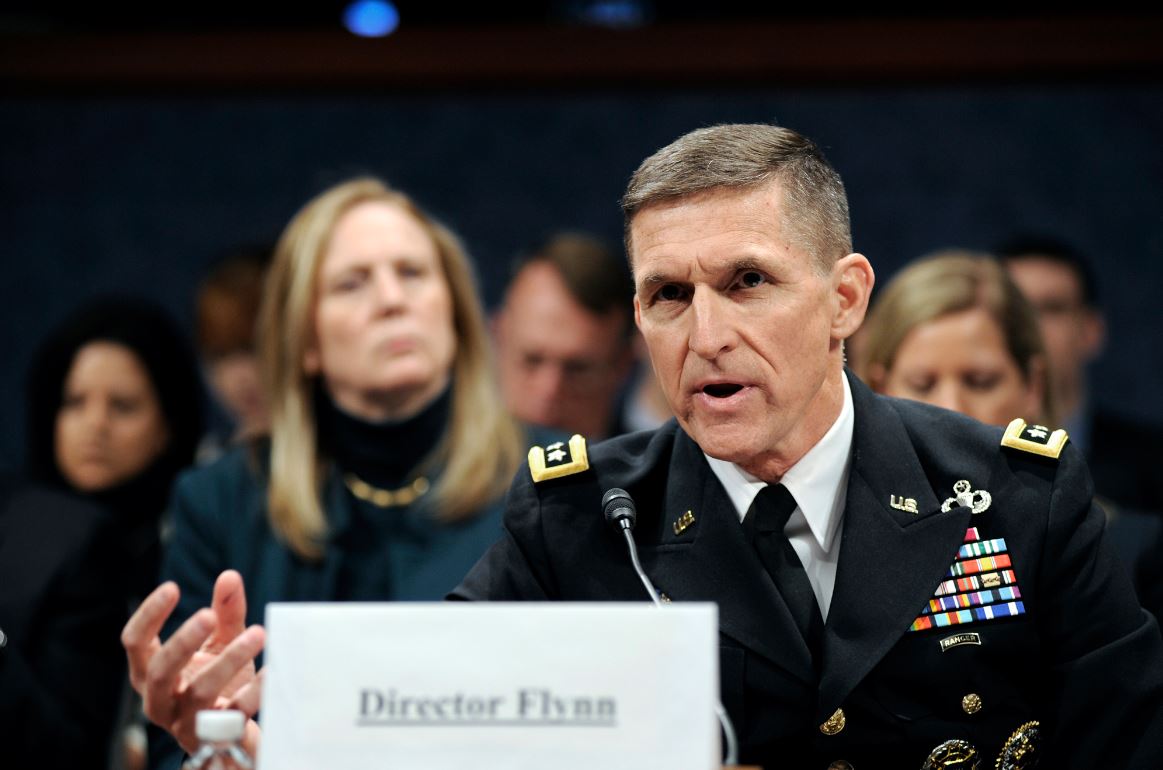What Can Congress Do If Flynn (Or Anyone Else) Refuses to Comply With a Subpoena?
SSCI Chairman Richard Burr said former National Security Adviser Michael Flynn will not honor a subpoena issued by the Senate Select Committee on Intelligence last week.

Published by The Lawfare Institute
in Cooperation With

SSCI Chairman Richard Burr said former National Security Adviser Michael Flynn will not honor a subpoena issued by the Senate Select Committee on Intelligence last week. According to Burr, “General Flynn’s lawyers said that he would not honor the subpoena and that’s not a surprise to the committee” and that they would “figure out what the next step if any is.” Burr then walked back his statements, indicating that he may have spoken too soon, and the committee then corrected Burr’s comments to say that Flynn’s lawyer has not yet responded.
So it isn’t yet clear whether Flynn in fact intends to not comply, nor it is clear what, if any, legal grounds he might be asserting for noncompliance. The subpoena reportedly covers a “large number of documents” relating to “his interactions with Russian officials.” The White House has not given any indication as to whether it believes any of the documents are protected under executive privilege.
If Flynn does refuse to comply with the subpoena, the Committee has two basic choices: let it go or pursue contempt remedies against Flynn. Notably, the Congressional Research Service issued a detailed report just last week on Congress’s contempt power and the enforcement of subpoenas—though the timing may be coincidental. Back in March we wrote about the rules governing congressional investigations and Congress’s contempt options:
Just as the Supreme Court has long recognized congressional subpoena power, so too has it upheld the enforcement power of contempt. If a witness refuses to comply with a subpoena to either produce documents or testify, Congress has a few options: inherent contempt authority, the criminal contempt statute, and various civil enforcement mechanisms.
Congress has oversight and investigative powers, and inherent within those is power to issue enforceable subpoenas. In order for congressional investigations to be effective, Congress needs the ability to compel the production of information and enforce its orders. Inherent contempt authority flows from the same idea: the ability to punish those who do not comply is necessary to the execution of legislative functions, including investigations. Under the inherent contempt authority, the House or Senate could call the witness and try him for contempt before the entire chamber. This used to be fairly common, but hasn’t been used in over 75 years.
Today, Congress more often relies on the criminal contempt statute. As we explained before,
2 U.S.C. § 192...makes it a misdemeanor to refuse to testify or produce documents. Under 2 U.S.C. § 194, the committee and full chamber of Congress must certify the contempt referral, which is sent to a U.S. Attorney ‘whose duty it shall be to bring the matter before the grand jury for its action.’ Notably, a criminal contempt charge was certified against Attorney General Eric Holder, but the U.S. Attorney refused to bring it before the grand jury.
Because Congress cannot force U.S. Attorneys to do its bidding, if a U.S. Attorney refuses—as the U.S. Attorney who received the contempt certification against Holder did—it might have to fall back on its inherent contempt authority. Relying on the criminal contempt statute here raises an interesting question: Would Special Counsel Robert Mueller be considered the “appropriate United States attorney” for the purposes of congressional contempt referral, since the documents subpoenaed by Congress bear on those matters which are part of his investigation? Deputy Attorney General Rod Rosenstein’s order relies on 28 C.F.R. 600, which says that “the Special Counsel shall exercise, within the scope of his or her jurisdiction, the full power and independent authority to exercise all investigative and prosecutorial functions of any United States Attorney.”
The relevant statute, 2 U.S.C. § 194, directs the President of the Senate (Vice President Mike Pence or, in his absence, president pro tempore Orrin Hatch) to certify the contempt statement of facts to the “to the appropriate United States attorney, whose duty it shall be to bring the matter before the grand jury for its action.” Typically, certifications against sitting executive branch officials have been made to the U.S. Attorney for the District of Columbia. (Interestingly, the current U.S. Attorney for D.C. Channing Phillips was not yet asked to resign because of the nature of his appointment.) Flynn, however, is not a current official and, recent federal grand jury subpoenas to Flynn’s associates were issued by the Eastern District of Virginia. So it’s unclear precisely where a referral would go. It is also unclear whether, given the subject matter, there is any reason the Senate could not determine that Mueller is the appropriate U.S. Attorney for the matter. If the certification were issued to the U.S. Attorney for D.C. or EDVA (or any other district, for that matter), the relevant offices would report to Rosenstein, and not Attorney General Sessions who is rescued, in deciding whether or not to refuse to bring the matter to the grand jury. Even in that case, Rosenstein may well defer the issue to Mueller, since the production of documents bear on his investigative equities.
The Senate has a final option for bringing contempt charges, as we referenced in our prior post:
Under a provision of the 1978 Ethics in Government Act, the Senate has another contempt mechanism: civil enforcement. The Senate can authorize the Senate Office of Legal Counsel to bring an enforcement action in federal district court. If the court orders compliance with the subpoena and the witness refuses, they are then subject to contempt of court and imprisonment. This procedure cannot, however, be used against executive branch officers.
How the Committee proceeds may depend both on how much cooperation it anticipates from the Department of Justice—which may depend in large part of whether the relevant official is Mueller or Rosenstein—and on its own calculation about the wisdom of forcing the issue given the newly appointed special counsel. Congress has tools at its disposal, but how it uses them is a strategic calculation.






